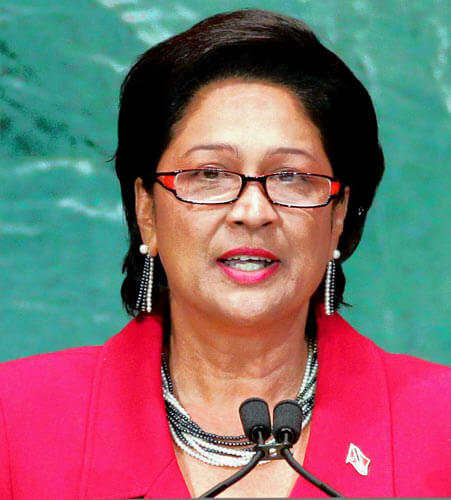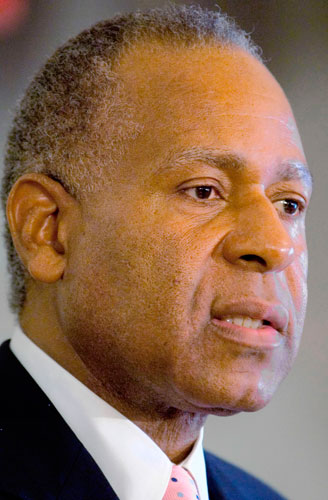Perhaps for people outside of Trinidad and Tobago, the assembly elections held in Tobago on Monday was purely an internal affair but for the near three-year administration of Prime Minister Kamla Persad-Bissessar, it was a referendum of massive proportions on her leadership of the Caribbean trade bloc’s largest economy, just as political parties and analysts are beginning to focus on the 2015 general election and what Tobago portends for that.
Seeking to totally dominate the political landscape, having won a two-thirds majority in the May 2010 general elections and local government polls a year after, Persad-Bissessar’s multiparty People’s Partnership (PP) administration invested millions in cash giveaways, promotional campaigns and promised more autonomy for Trinidad’s sister isle, in a bid to woo Tobagonians from the main opposition People’s National Movement (PNM). That strategy has failed miserably.
But once the results began to trickle in after 9:00 p.m. on Monday night, it was clear that the PP’s favored political force, the Tobago Organization of the People (TOP) was headed for a humiliating defeat, even though the prime minister and other senior cabinet ministers had virtually moved the seat of government to Tobago for most of January, as evidence of their desperation to win and dominate T&T politics.
The final count showed that the PNM had won all 12 of the Tobago Assembly seats that were on offer and their main man, TOP Leader Ashworth Jack, had even lost the safest non-PNM seat on the tourist paradise.
No other party had ever won all the seats on offer in any previous Tobago elections, forcing analysts to warn the PP to take note that the electorate is paying attention to the plethora of missteps, widespread corruption chief among them, of the PP administration since the PNM’s Patrick Manning had gifted them the government by unnecessarily calling elections half way through a five year-term.
“They made this election a referendum of Persad-Bissessar’s leadership,” political scientist Ramsamooj said. “Jack was rejected as a leader because he was a troubled candidate. Jack did not stamp the election with a capacity to lead Tobago. They really did not focus effectively enough in positioning Mr. Jack as that intellectual that Tobagonians would have been comfortable with,” Ramsamooj said as results tricked in.
In the runup to Monday’s runoff, the issue of race had as expected raised its ugly head, with one opposition candidate telling the mostly Afro Tobago population that a boat from Calcutta would descend on the island if the PP were ever to win, meaning that Indo Trinidadians would flock to Tobago in numbers.
The remark was widely condemned by all concerned but it appeared to have had the effect of consolidating the PNM vote and banishing the PP into political oblivion, at least for now.
Several analysts who were on live television and radio as results flowed in also blamed the prime minister for the rejection of the PP, as islanders saw her as an outsider trying to impose an unpopular candidate on them, and one who would allow PP-favored people to come in and benefit from all the contracts and goodies associated with victorious political parties in the Caribbean.
























